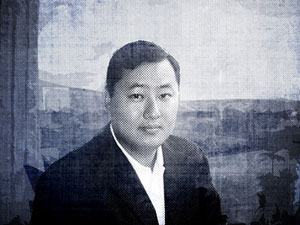The Office of Professional Responsibility report on the Bush administration’s torture memos—released at long last this evening, completely bollixing this reporter’s plans for after work cocktails—is remarkable on a number of levels, not least the duration it took to put together. The report was almost five years in the making. What took so damn long? “This was not a routine investigation,” the report notes, going on to detail a laundry list of complications. One was the deletion of the email records of Office of Legal Counsel officials John Yoo and Patrick Philbin. (Sound familiar?)
The report elaborates in a footnote:
OLC initially provided us with a relatively small number of emails, files, and draft documents. After it became apparent, during the course of our review, that relevant documents were missing, we requested and were given direct access to the email and computer records of [REDACTED], Yoo, Philbin, [Assistant Attorney General Jay] Bybee, and [Assistant Attorney General Jack] Goldsmith. However, we were told that most of Yoo’s email records had been deleted and were not recoverable. Philbin’s email records from July 2002 through August 5, 2002—the time period in which the Bybee Memo was completed and the Classified Bybee Memo…was created—had also been deleted and were reportedly not recoverable.
Also slowing down the process was some “witnesses’ initial reluctance to provide information,” and a complete lack of cooperation by others, including Vice President Dick Cheney’s legal counsel and later chief of staff David Addington and former deputy White House counsel Timothy Flanigan, both of whom refused interviews.
And there was at least one other complicating factor. During the years the OPR was conducting its inquiry into the memos, the watchdog was saddled with so many other allegations of malfeasance by the Bush Justice Department (including, presumably, the agency’s politicized hiring practices and the US attorney firings) it was difficult to keep up with it all:
All of these problems were exacerbated by limited OPR resources, in light of an unprecedented number of complex investigations of high-level officials occurring during this same time period.
Given the range of difficulties OPR “experienced in obtaining information over the past five years,” the watchdog leaves open the possibility that its exhaustive report may not even be the final word on the controversial memos: “It remains possible that additional information eventually will surface regarding the CIA program and the military’s interrogation programs that might bear upon our conclusions.”











